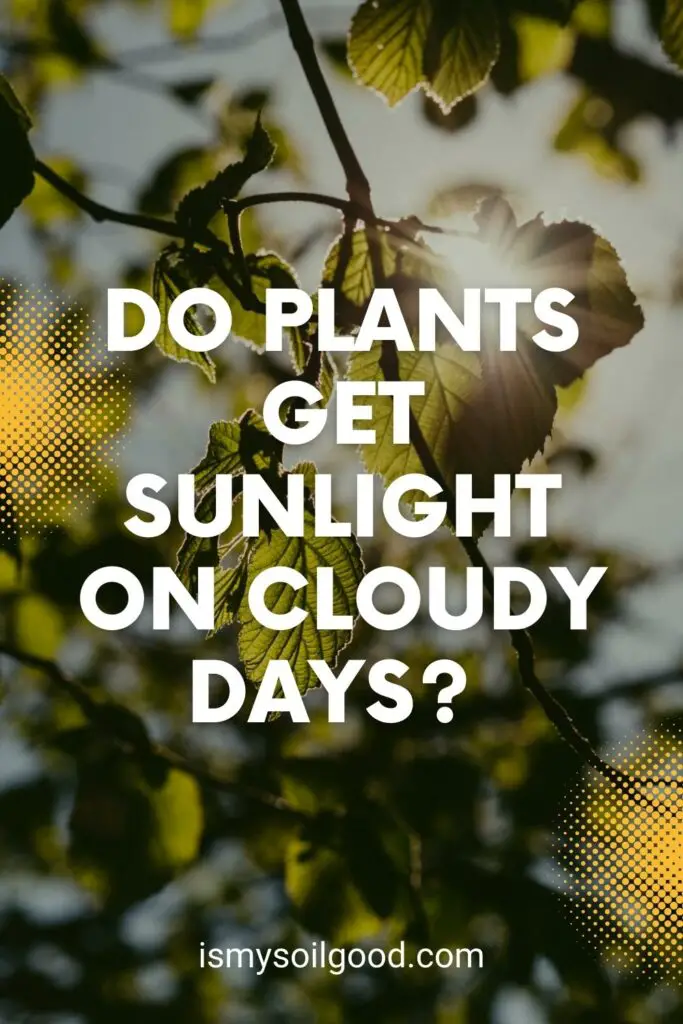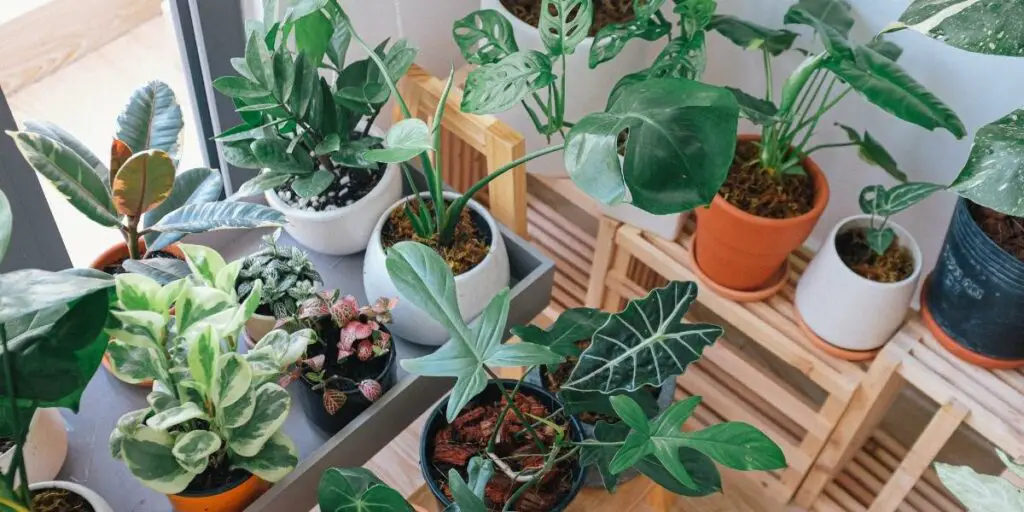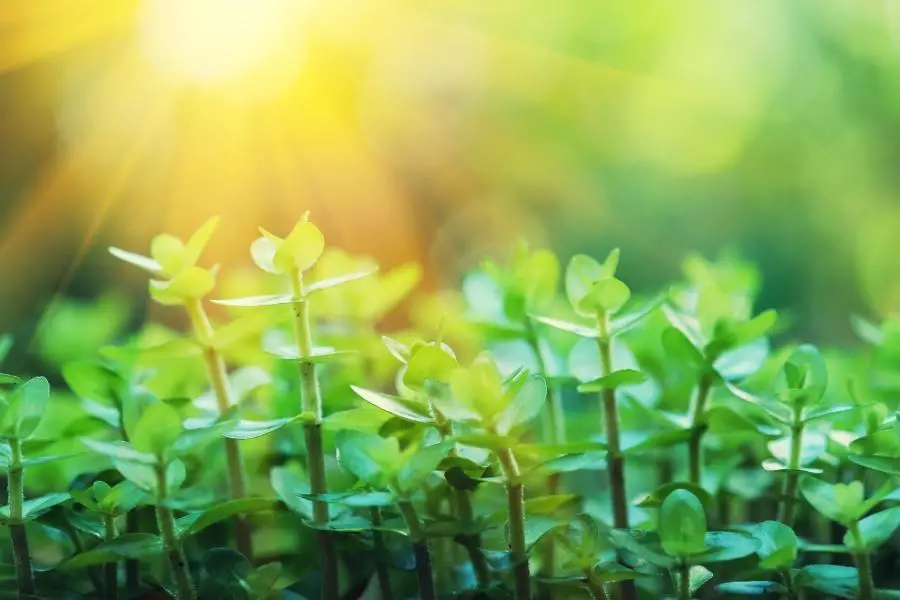We're an affiliate
We hope you love the products we recommend! Just so you know, we may collect a share of sales or other compensation from the links on this page. Thank you if you use our links, we really appreciate it!

Do plants get sunlight on cloudy days? The answer, it turns out, is a little more complicated than you might think. Plants do need sunlight to grow, but they can still survive in shady areas. In fact, some plants actually prefer shade to direct sunlight! Read on to learn more about the relationship between plants and light.
Table of Contents
Do plants get sunlight on cloudy days?
Even on cloudy days, there is some sun filtering through the clouds. However, the amount of sunlight that reaches the ground is significantly reduced. This can have an impact on plant growth, as many plants rely on sunlight for energy.
While some plants may be able to survive on limited amounts of sunlight, they will usually grow more slowly. In addition, plants that require a lot of sunlight may not be able to survive if they don’t get enough sun on cloudy days. As a result, it’s important to consider the amount of sun your plants need when deciding whether or not to grow them in cloudy conditions.
Do plants need direct sunlight for photosynthesis
not all plants need direct sunlight to photosynthesize. Some plants, such as those that grow in caves or understory forests, thrive in low-light conditions. These plants have adapted to their environment by developing larger leaves or increasing the number of chloroplasts in their cells. As a result, they are able to absorb more light and continue to grow.
While direct sunlight is not always necessary for photosynthesis, it is still the preferred condition for most plants. Plants that receive too little light will often become spindly and produce fewer leaves. In extreme cases, a plant may stop growing entirely.

Do plants need direct sunlight or just light and why?
In most cases, it’s best to give the plant some direct sunlight. The sun’s rays provide the plant with the energy that it needs to grow. However, there are some plants that will do just fine with artificial light. These include plants that prefer low-light conditions, such as ferns, as well as those that are sensitive to heat, such as succulents.
If you’re not sure whether your plant needs direct sunlight or not, it’s always best to err on the side of caution and give it some sun. After all, you can always move the plant to a shadier spot if it starts to look too stressed.
Can plants grow without sunlight?
In order to grow and thrive, plants need sunlight. Sunlight is necessary for the process of photosynthesis, which allows plants to convert light into energy that they can use for growth. There are a few plants that can thrive in low-light conditions. These plants have adapted to survive in shady areas, where they receive little direct sunlight. Many of them are native to forest floors, where they compete for light with taller trees.
As a result, they tend to have large leaves that are thin and reflective, which helps them to make the most of available light. While these plants may not grow as quickly as those that receive more direct sunlight, they can still be healthy and thrive in the right conditions. So, while most plants need sunlight to grow, there are a few exceptions that can prosper in low-light environments.
Do indoor plants need direct sunlight?
many common houseplants will do just fine in low-light conditions. Of course, the amount of light a plant needs will vary depending on the species. For example, a fern or philodendron will do well in a shady spot, while a cactus or succulent will need more bright light.

If you’re not sure how much light your indoor plants need, a good rule of thumb is to start with indirect sunlight and then move them gradually into brighter areas. By paying attention to your plant’s leaves, you’ll quickly be able to tell if they are getting too much or too little light.
Can plants get sunlight through windows?
Window glass filters out some of the ultraviolet light that plants need for photosynthesis, so plants that do well in low-light conditions tend to have larger leaves that allow more light to reach the chloroplasts. Additionally, it’s important to make sure that the window you’re using gets some direct sunlight throughout the day; otherwise, your plants may not get enough light to survive.
If you have a room in your home that doesn’t get much natural light, you might be wondering if it’s possible to grow plants there. The short answer is yes, but you will need to be careful about which types of plants you choose.
Is light through a window considered direct sunlight?
No, light through a window is considered indirect sunlight. This is because the glass filters out some of the ultraviolet light that plants need for photosynthesis. Direct sunlight, which comes from the sun itself, is much more intense than light that has been reflected or filtered through a window. As a result, plants that are exposed to direct sunlight will grow more quickly and produce more flowers than those that are not.
How to tell if a plant is not getting enough sun

There are a few signs that you can look for to tell if a plant is not getting enough sun. The first is that the leaves will be pale in color. They may also be smaller than leaves on healthy plants. Another sign is that the plant will not be growing as quickly as it should be. If you notice any of these signs, you should move the plant to a location where it will get more sun.
How much sunlight does a plant need?
The amount of sunlight they need can vary depending on the type of plant. Some plants, such as cacti, do well in full sun, while others, such as ferns, prefer lower light levels. In general, most plants need at least four hours of direct sunlight each day in order to stay healthy.
However, some plants will tolerate less sun if they are given a break during the hottest part of the day. For example, succulents often do well when they are placed in an east-facing window where they will receive morning sun but will be protected from the harsh afternoon rays.
Conclusion
Plants need sunlight to grow. This is an undisputed fact. However, what about cloudy days? Do plants still get sunlight on cloudy days? While it’s true that plants don’t get as much light on cloudy days, they still do receive some sunlight.
In addition, the clouds also act as a natural diffuser, providing light over a larger area. This means that your plants will likely not die if there are a few cloudy days in a row, but they won’t thrive either. To keep your plants healthy and growing strong, make sure to give them at least some direct sunlight each day.

